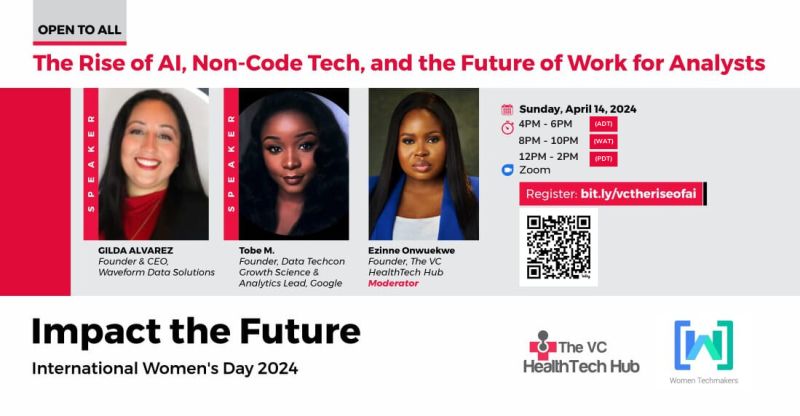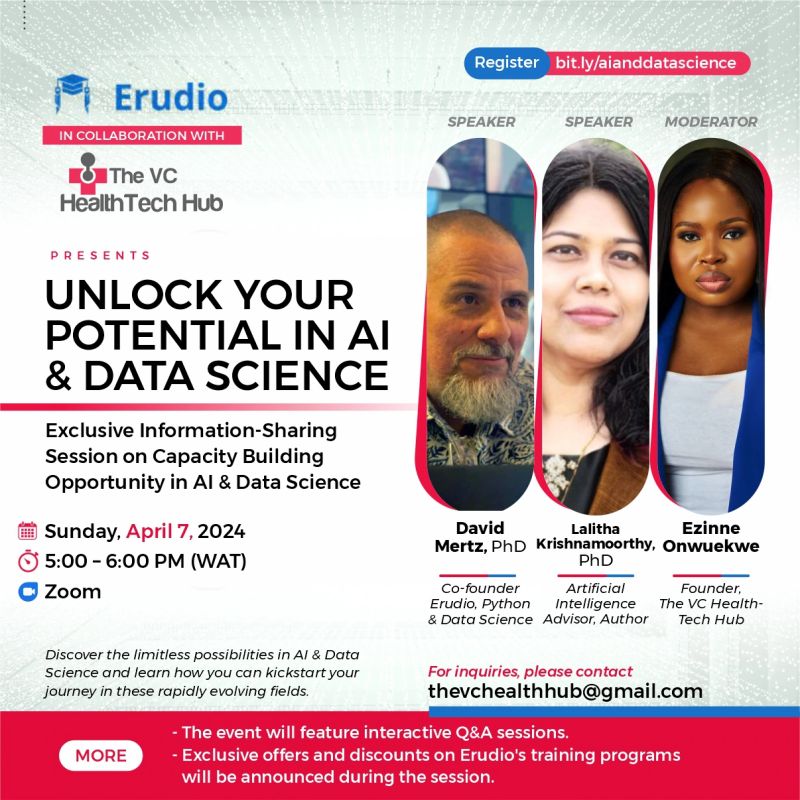
In the rapidly evolving world of digital health, few professionals stand out like Dr. Dolapo Komolafe—a medical doctor, product designer, and healthcare innovator whose work is transforming patient care through cutting-edge technology. With a unique background in clinical practice and digital solution design, Dolapo has played a pivotal role in developing groundbreaking platforms like Fertitude, enhancing care delivery, accessibility, and effectiveness in healthcare.
Her pioneering approach seamlessly merges medical expertise with tech-driven solutions, setting new standards in digital health innovation. In this exclusive spotlight, we explore Dolapo Komolafe’s journey, from her roots in medicine to being an aspiring healthcare product designer, thereby setting new standards in digital health solutions and shaping the future of patient-centered care.
During our exclusive interview, Dolapo Komolafe shared some remarkable insights into her experience:
1. Please tell us a bit about yourself and your background in healthcare or digital health.
I’m a medical doctor and product designer passionate about digital health. My journey started in clinical practice, where I saw firsthand the challenges patients and providers face due to inefficiencies in healthcare systems. This led me to product design, where I now focus on building user-centered digital health solutions. I’ve worked on Fertitude, a women’s health platform. I aim to bridge the gap between clinical expertise and digital innovation, ensuring that technology truly enhances healthcare delivery and patient experiences.
2. What are your perspective on the state of Digital Health in your country?
Digital health in Nigeria has come a long way, especially in the last few years. We’ve seen the rise of telemedicine platforms, electronic health records, and mobile health apps tackling everything from maternal health to chronic disease management. There’s a growing awareness that technology can help bridge healthcare gaps, and that’s a huge step forward.
However, the reality on the ground is still tough. Many hospitals still rely on paper records, internet access is unreliable in rural areas, and digital health solutions often struggle with adoption because healthcare providers aren’t adequately trained to use them. There’s also the issue of trust—many patients still prefer in-person consultations over virtual care due to concerns about credibility and accessibility.
That said, I’m hopeful. More young professionals are entering the digital health space, policymakers are starting to pay attention, and collaborations between tech startups and healthcare providers are increasing. With the right investments in infrastructure, digital literacy for healthcare workers, and policies that encourage innovation, we can build a more efficient and accessible healthcare system in Nigeria.
3. What motivated you to apply for the Digital Health Skills for Africa (formerly VC Health Tech Hub) Digital Health training Cohort 2.0?
I’ve seen firsthand how inefficiencies in healthcare systems affect both patients and providers. There were times in clinical practice when I knew a simple digital solution—like better patient record management or remote monitoring—could have prevented a delayed diagnosis or improved patient care. But the gap between healthcare and technology still felt too wide. That realization pushed me to explore product design and digital health, I also recognized that building tech for healthcare requires more than just good UI—it needs deep knowledge of health systems, policies, and implementation strategies.
That’s why I applied for this program—to understand the bridge between clinical practice and digital health solutions. I wanted to understand the broader ecosystem of digital health in Africa. This program aligned perfectly with my goal of contributing to meaningful healthcare transformation.
4. How has the cohort-based approach (networking, mentorship, and peer learning) shaped your learning experience?
This experience has been more than just a training program—it’s been an eye-opener. Coming in, I expected to gain technical knowledge, but what truly stood out was the opportunity to learn from professionals across Africa. Healthcare challenges vary from country to country, yet we all share common struggles—limited infrastructure, data gaps, and the need for more efficient digital solutions.
Through networking, I’ve gained insights into how different countries are tackling digital health especially telemedicine in Kenya. The mentorship aspect has been incredibly valuable too—learning directly from experts who have built and implemented digital health solutions gave me a more realistic view of what works and what doesn’t. On a more hands-on level, I learnt about Microsoft Excel, a good data analytics tool. It has been a game-changer for me and very essential in designing effective healthcare solutions.
5. Can you share your take on Digital Health capacity building in Africa?
Digital health capacity building in Africa is growing, but still unevenly distributed. We’re seeing more training programs, and more healthcare professionals embracing technology, and that’s a huge step forward. But when you take a closer look, the gaps become clear—many healthcare workers still don’t have the digital literacy or infrastructure needed to fully leverage these tools.
During this training, I interacted with professionals from different African countries, and one thing stood out—the digital health landscape is not the same everywhere. Some countries are advancing in telemedicine and AI-driven diagnostics, while others are still struggling with electronic medical records. This disparity shows that capacity building isn’t just about training individuals; it’s about creating an environment where digital health can thrive—better policies, access to funding, and strong collaboration between the public and private sectors.
There’s momentum. More people, including clinicians like myself, are getting involved in digital health, bridging the gap between medical practice and technology. If we keep this pace and ensure that training is accessible, relevant, and practical, Africa has the potential to lead in digital health innovation—not just catch up.
6. Can you share a specific skill or knowledge area you’ve gained from the training that you’ve already started applying in your work?
One of the most eye-opening sessions was on practical DHIS2 training. Understanding how health data is collected, structured, and analyzed has changed the way I approach digital product design. It’s not just about making an app look good—it’s about ensuring healthcare workers can input, retrieve, and use data efficiently to improve patient outcomes.
Another major learning point was global goods in digital health—how open-source solutions like OpenMRS are being used across Africa. This has also shifted my mindset—we don’t always need to build from scratch; adapting existing tools can be more effective.
Additionally, the module on change management in digital health leadership has been invaluable. I now see that tech alone isn’t enough—successful implementation depends on engaging healthcare workers and fitting into real-world workflows.
These insights have reshaped how I work as a product designer in digital health. Now, I consider not just how a system looks, but how it functions within the larger healthcare ecosystem, how data flows, and how it fits into real-world workflows.
7. How do you see digital health shaping your career trajectory, and what are your next steps after completing the training?
As an aspiring healthcare product designer, digital health is helping me bridge the gap between technology and real-world healthcare needs. It’s not just about creating visually appealing interfaces but ensuring that the tools I design truly improve workflows, patient care, and decision-making.
Digital health has made me more aware of how design impacts healthcare efficiency and now I see my role as someone who translates complex healthcare challenges into intuitive, accessible, and scalable digital solutions.
Moving forward, my next steps are to apply these insights in real-world projects, collaborate with health professionals to refine user-centred solutions, and continue learning how to build impactful, sustainable healthcare products that work within existing systems. The goal is not just innovation but practical, lasting change in healthcare through design.”
8. If you could implement one digital health solution in your community or workplace today, what would it be and why?
I would implement a digital supply chain management system for all medicines with a drug verification system to combat counterfeit drugs, which has been a major issue over the last few months. The system would allow healthcare providers to verify the authenticity of medicines in real-time, ensuring they are safe. It would also feature a real-time inventory system with low-stock alerts to prevent shortages. The goal is to create a user-friendly platform that improves safety, efficiency, and trust in the healthcare supply chain.
9. What advice would you give to healthcare professionals and/or students considering a career in digital health?
Start by identifying a healthcare challenge you’re passionate about solving. Digital health is vast, so whether you’re interested in AI, telemedicine, or health informatics, find a niche. Also, invest in learning digital skills—whether it’s UI/UX, data science, or product management—because understanding technology will help you build solutions that truly work.
10. Could you describe the Digital Health Skills for Africa (formerly VC Health Tech Hub) Digital Health training in three words?
Inspiring, Transformative, Practical.


